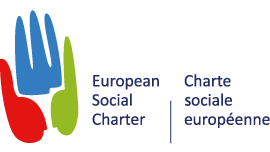“Respect for fundamental social rights constitutes the best way forward to increase citizens’ participation in democratic processes, reinforce their trust in European construction and combat fundamentalism and radicalisation by promoting inclusion and social cohesion,” highlighted Michele Nicoletti, Vice-President of the Parliamentary Assembly of the Council of Europe and General Rapporteur of the High-Level Conference on the European Social Charter (Turin, 17-18 October 2014), while presenting the report to the Committee of Ministers on 4 February.
The Conference, organised by the Council of Europe in co-operation with the Italian authorities (in the framework of the Italian Presidency of the European Union), gathered policy-makers from 37 European countries to reaffirm the relevance of social rights in times of crisis.
“The conclusion in Turin was that social rights are therefore doubly undermined: firstly, because of institutional disequilibrium between the monitoring systems of fundamental rights in Europe and secondly, because of the impact of the crisis, which is leading to restrictions of rights or the dismantling of the policies designed for their concrete implementation,” underlined the President of the Italian delegation to PACE.
At the conference, Secretary General of the Council of Europe Thorbjørn Jagland launched the “Turin process” for the European Social Charter (one of the priorities for his second mandate), which aims to consolidate and enhance its system of normative standards.
“This process represents a genuine opportunity to turn declarations of principle, at national and European level, into targeted political actions, in order to fill the gap between civil and political rights on the one hand, and social and economic rights on the other,” emphasised Nicoletti.
From 12-13 February in Brussels, the Belgian Chairmanship of the Committee of Ministers will organise, in the framework of the “Turin process,” the Conference on the Future of the Protection of Social Rights in Europe – a high-level exchange among academic experts, social partners, civil society organizations and representatives of international and political institutions.
Background:
The European Social Charter is a Council of Europe treaty signed in Turin on 18 October 1961 which safeguards day-to-day freedoms and fundamental rights: housing, health, education, employment, legal and social protection, freedom of movement for individuals, non-discrimination. The substance of the Charter was supplemented by a revised version of 1996.
The European Committee of Social Rights has two procedures to ensure that States Parties comply with their commitments under the Charter: national reports and collective complaints. A Protocol opened for signature in 1995, which came into force in 1998, allows national and international trade union organisations, employers’ organisations and non-governmental organisations to submit to the Committee their complaints about violations of the Charter.



